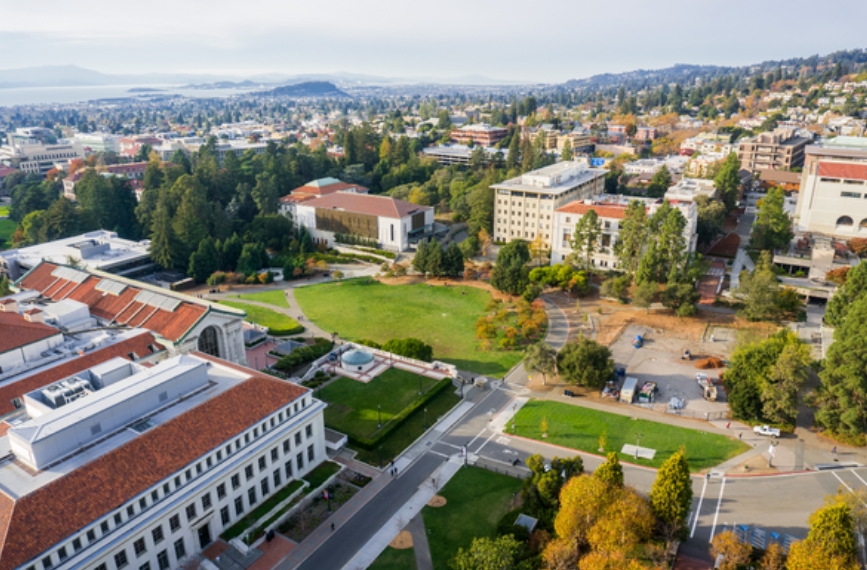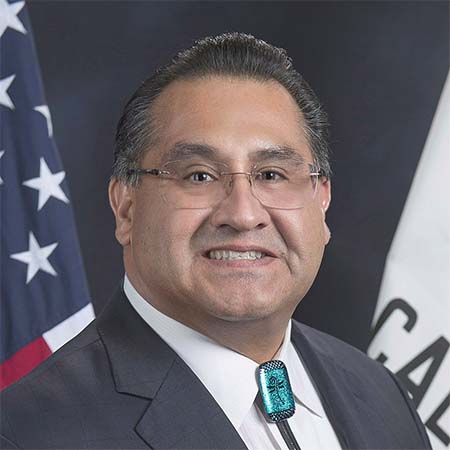
- Details
- By James C. Ramos
Guest Opinion. This year, on Sept. 6, after the Labor Day holiday, tribal leaders will travel to the State Capitol to address the legislature about the recent audit of the California State University system’s failure to repatriate nearly 700,000 Native American human remains and artifacts. These remains remains are stored in boxes on shelves.
The bill, AB 389, will require monitoring campus efforts to review their collections and completion of repatriation activities by December 2025, implementing protocols for handling and identifying remains and cultural items and issuing a system wide Native American Graves Protection and Repatriation Act policy establishing consistent repatriation processes and training requirements.
Sponsors supporting this important trust building measure include the San Manuel Band of Mission Indians, Redding Rancheria, Morongo Band of Mission Indians, Ricon Band of Luiseno Indians, Picayune Rancheria of Chukchansi Indians, Tule River Indian Tribe of California, Santa Ynez Band of Chumash Indians and the Tachi Yokut Tribe.
Too many Californians – when they think of the state’s tribes – imagine a single mass speaking in one language, practicing one faith and the same customs. Too many also believe that the state’s Native Americans no longer face a lack of access to health care, education, equal protections in the areas of public safety, children’s foster care or inclusion when decisions are made that impact them.
Far too many Californians believe the state’s First People are raking in cash from the 76 casinos and 5 mini-casinos operating in California. It is true that these casino-owning, federally recognized tribes have become economic powerhouses with revenues of approximately $9 billion annually. But not even all the federally recognized tribes own casinos, and the much greater number of tribes that are non-recognized struggle to ensure the security and wellbeing of their members.
The reality is that California has more than 100 tribes and several more that are unrecognized because of the shameful history of broken treaties, displacement and other maltreatment.

Four years ago, in June 2019, Gov. Gavin Newsom issued an apology to the state’s Native Americans for the violence and other wrongs committed against them. Five months prior to that apology, I was elected to the state legislature. My election was 169 years after California was admitted to the Union!
Since then, I have attempted to make my election count, not just for the 45th Assembly District which covers much of San Bernardino County, but also to create a voice and representation for the larger Native American community.
Gov. Newsom’s apology signaled his willingness to write a new chapter in the state’s relationship with its tribes. In 2021, then-Speaker Anthony Rendon authorized me to create the California Native American Legislative Caucus. Legislators from both houses and both parties joined the Caucus. Together, we began the challenging work of removing obstacles to the services and rights that others in the state take for granted.
More than 25 bills dealing with Native American education, foster youth, mental health access and other issues affecting basic civil rights and health and welfare have been signed and will make a difference in the daily lives of the state’s First People. They include:
- AB 3099 signed in 2020 to increase communication and coordination among state, local and tribal law enforcement agencies to combat the crisis of Missing and Murdered Indigenous People
- AB 873 signed in 2021 to assist tribal courts protect tribal foster youth
- AB 855 signed in 2021 to create the First Native American paid holiday for California’s state and local court employees
- AB 945 signed in 2021 reinforced Native American rights to wear tribal regalia at high school graduation ceremonies
- AB 923 signed in 2022 to encourage the state and its agencies to consult on a government-to-government basis with the tribes
- AB 1703 signed in 2022 to create the American Indian Education Act to encourage school districts, county offices of education, and charter schools to engage with their local tribes to build more complete and accurate version of Native American classrooms
- AB 44, current legislation, to grant tribal governments and tribal courts access to the California Law Enforcement Telecommunications System to increase public safety on reservations
- AB 2022 signed in 2022 prohibits the use of the word “s****”, a slur for female Native Americans, as a name for geographic features and places within the State of California
So much more work needs to be accomplished to ensure equity in all areas of Native American lives including achieving one of the most fundamental of human rights – the respectful reburial of our ancestors.
Assemblymember James C. Ramos proudly represents the 45th Assembly district which includes the Cities of Fontana, Highland, Mentone, Redlands, Rialto and San Bernardino. A tribal citizen of the San Manuel Band of Mission Indians, he is the first and only California Native American serving in the state’s legislature. Ramos chairs the Assembly Committees on Rules.
Help us tell the stories that could save Native languages and food traditions
At a critical moment for Indian Country, Native News Online is embarking on our most ambitious reporting project yet: "Cultivating Culture," a three-year investigation into two forces shaping Native community survival—food sovereignty and language revitalization.
The devastating impact of COVID-19 accelerated the loss of Native elders and with them, irreplaceable cultural knowledge. Yet across tribal communities, innovative leaders are fighting back, reclaiming traditional food systems and breathing new life into Native languages. These aren't just cultural preservation efforts—they're powerful pathways to community health, healing, and resilience.
Our dedicated reporting team will spend three years documenting these stories through on-the-ground reporting in 18 tribal communities, producing over 200 in-depth stories, 18 podcast episodes, and multimedia content that amplifies Indigenous voices. We'll show policymakers, funders, and allies how cultural restoration directly impacts physical and mental wellness while celebrating successful models of sovereignty and self-determination.
This isn't corporate media parachuting into Indian Country for a quick story. This is sustained, relationship-based journalism by Native reporters who understand these communities. It's "Warrior Journalism"—fearless reporting that serves the 5.5 million readers who depend on us for news that mainstream media often ignores.
We need your help right now. While we've secured partial funding, we're still $450,000 short of our three-year budget. Our immediate goal is $25,000 this month to keep this critical work moving forward—funding reporter salaries, travel to remote communities, photography, and the deep reporting these stories deserve.
Every dollar directly supports Indigenous journalists telling Indigenous stories. Whether it's $5 or $50, your contribution ensures these vital narratives of resilience, innovation, and hope don't disappear into silence.
 The stakes couldn't be higher. Native languages are being lost at an alarming rate. Food insecurity plagues many tribal communities. But solutions are emerging, and these stories need to be told.
The stakes couldn't be higher. Native languages are being lost at an alarming rate. Food insecurity plagues many tribal communities. But solutions are emerging, and these stories need to be told.
Support independent Native journalism. Fund the stories that matter.
Levi Rickert (Potawatomi), Editor & Publisher
